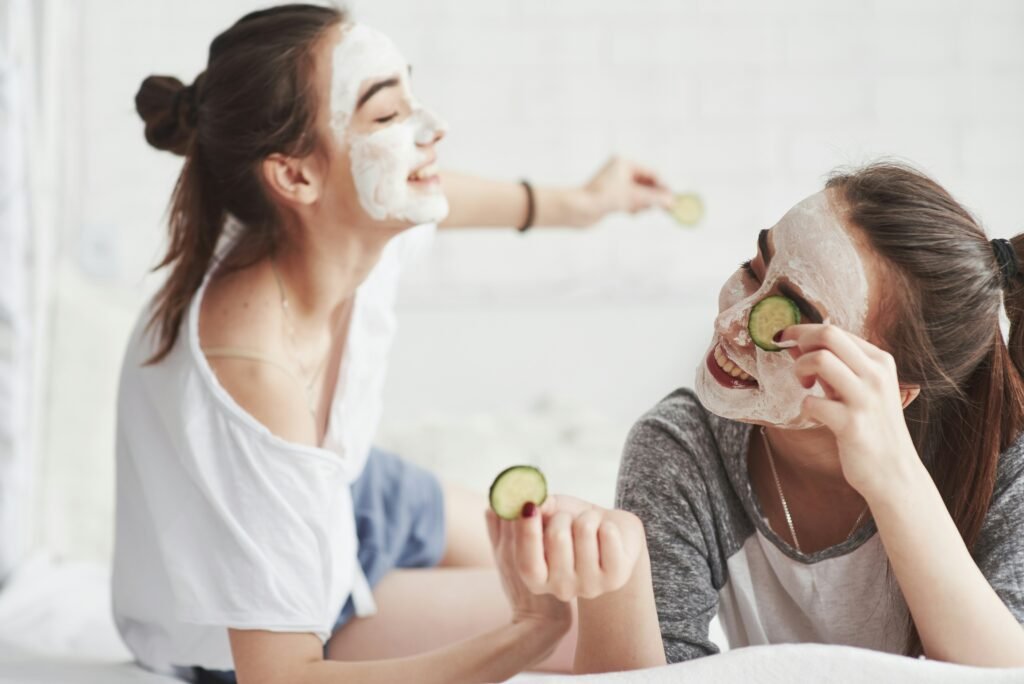25 Self-Care Habits That Feel Like a Hug
Introduction: Bringing Self-Care Into Everyday Life
Let’s be real—life gets overwhelming. Between deadlines, errands, and family stuff, it’s way too easy to forget about ourselves. For a long time, I thought self-care had to be fancy—like booking a spa or buying expensive creams. But honestly? It’s the small, simple moments that end up feeling like the biggest hug. After years of putting myself last, I finally realized little pauses here and there made me feel more alive, more myself.
The habits I’m sharing aren’t complicated or costly. They’re tiny things you can slip into your day without turning your routine upside down. Just small reminders that you matter too.
What I love is how these habits bring you back to you. The world pulls us in a million directions, and these moments are like a reset button. They whisper, “Slow down—you count too.”
Some of these ideas come from my own ups and downs, others from tips I picked up talking with friends and experts. They’ve all made a difference in how I feel.
So grab your favorite drink, get comfy, and let’s go through 25 self-care habits that feel like a hug whenever you need one.

Why These Self-Care Habits Matter
Taking care of yourself isn’t selfish—it’s survival. These 25 little habits aren’t just nice extras. They can lower stress, boost your immune system, and clear your mind. Studies even show that people who practice self-care regularly are way less likely to burn out.
The best part? Most of them take just a few minutes. You don’t need money, equipment, or a free afternoon. They’re quick, flexible, and easy to do no matter how busy life gets.
And over time, these tiny moments add up. They don’t just help in the moment—they build a solid base that makes you more resilient when life gets messy. Instead of being quick fixes, they’re like building blocks for long-term wellbeing.
My Self-Care Stor
I first understood the power of these small habits when I was going through a tough time. Work was stressful, family life was nonstop, and I felt completely drained. One night, instead of pushing through like always, I sat down with a cup of tea. For five minutes, I did nothing but notice the heat of the mug and the steam rising.
It sounds so small, but it changed everything. My breathing slowed, my shoulders dropped, and I finally felt like I had room to breathe again. Nothing around me had shifted, but I wasn’t drowning in it anymore.
From then on, I made self-care part of my routine. Friends started telling me I seemed calmer and more present. One even said, “You look lighter somehow.” What she didn’t know was that I had spent five quiet minutes breathing before leaving the house that morning.
The sweetest part? My partner and kids picked up some of these habits too. Now we’ve created little rituals as a family, and it’s helped us feel more connected while also teaching our kids the importance of taking care of themselves.
Why These Habits Feel Like a Hug
These habits work because they flip your body into “relax mode.” They release feel-good hormones like serotonin and oxytocin—the same ones that make a real hug so comforting.
They cover all areas of wellbeing: your body, your emotions, your mind, and even your spirit. Whether you need rest, calm, or clarity, there’s a habit here that fits.
And the best part is, they break the cycle of stress. Even a short pause pulls you out of autopilot and gives your brain a reset.
What You Need For Self-Care Success
- A few minutes of your day (that’s it!)
- A notebook if you like writing things down
- Comfy clothes
- A quiet corner (even your car counts)
- A water bottle to remind you to hydrate
- A little nature—plants, scents, fresh air
- Soft lighting (candles, lamps, or fairy lights)
- A cozy bed that actually feels inviting
- Snacks or meals that fuel you instead of draining you
- Music that lifts your mood
- Apps for meditation or breathwork if you like guidance
- And most importantly: permission to put yourself first
How to Make Them Part of Your Day
Don’t overwhelm yourself. Start with one or two habits that feel easy. The goal isn’t to do all 25 at once—it’s to make them stick.
Link them to things you already do. For example, breathe deeply while waiting for the kettle to boil, or stretch for a minute before bed. Pairing them with daily routines makes them effortless.
Notice how each habit affects you. Maybe one helps with work stress while another eases family chaos. Over time, you’ll build your own little self-care toolkit.
And if you miss a day? Let it go. Self-care isn’t about being perfect—it’s about being kind to yourself.
Tips for Sticking With It
Five minutes every day will help you more than one big self-care day every few weeks. Think of it like tiny drops of kindness that fill your cup over time.
Journaling helps too. Write down what you try and how it makes you feel. Looking back, you’ll see how much progress you’ve made.
Variations and Adaptations
Not into sitting still? Try mindful movement—stretching, walking, or even doing chores slowly and intentionally.
Can’t get outside? Bring nature to you—plants, sounds, or even imagining a peaceful place. Visualization can be surprisingly powerful.
Short on time? Use apps or online resources to guide you through quick practices. The key isn’t the method—it’s the intention.
Making It Healthier
You can also pair these habits with mental practices for extra impact. For example, while you soak in a bath, add in some gratitude reflection. You’re calming your body and uplifting your mind at the same time.
If you have health challenges, adapt the practices. Try chair yoga instead of standing, or shorter breaks instead of longer ones. Self-care should fit you, not the other way around.
Final Thoughts
These 25 habits aren’t just things to “do”—they’re reminders that you deserve care and comfort, just like anyone else. They show that you don’t always need someone else to give you a hug—you can learn to give it to yourself.
So, which habit will you try first? Start small, and see how it feels. And if you want more, check out our other posts on building resilience and creating mornings that matter.

Frequently Asked Questions About Self-Care Habits
How long does it take for self-care habits to make a difference in my wellbeing?
Some benefits, like reduced stress and improved mood, can be felt immediately. However, the deeper effects—such as increased resilience and improved self-relationship—typically emerge after 2-3 weeks of consistent practice.
I feel guilty taking time for self-care. How can I overcome this?
Start by recognizing that self-care enables you to show up more fully for others. Frame it as responsible stewardship of your wellbeing rather than an indulgence. Begin with just 5 minutes daily to ease into the practice without triggering guilt.
Can self-care habits replace therapy or medication for mental health issues?
No. While these habits can significantly support mental health, they complement rather than replace professional treatment. Think of them as daily maintenance alongside professional care for specific conditions.
What if I don’t have time for self-care?
Begin by integrating micro-moments of care into existing routines. Even 60 seconds of mindful breathing while waiting for your computer to boot up counts. Remember: self-care doesn’t always require additional time—sometimes it’s about how you approach what you’re already doing.
How do I know which self-care habits are right for me?
Pay attention to what leaves you feeling genuinely replenished rather than depleted. Experiment with different practices and notice their effects on your energy, mood, and thought patterns. Your body and emotions will guide you toward what you need most.
Is self-care the same as self-improvement?
No. Self-improvement focuses on fixing perceived deficiencies, while self-care centers on meeting your fundamental human needs with kindness. True self-care accepts you as you are while nourishing your wellbeing.
How can I practice self-care on extremely busy days?
Integrate brief self-care moments into transitions between activities. Three deep breaths before starting your car, a moment of gratitude before eating, or stretching while waiting for your coffee can provide meaningful support without requiring additional time.
What if self-care activities make me more anxious?
Some practices, particularly those involving stillness or introspection, can temporarily increase awareness of difficult emotions. Start with more active or externally-focused practices and gradually build tolerance for more reflective ones. Consider seeking support from a mental health professional if anxiety persists.
Can children benefit from these self-care habits?
Absolutely! Many of these practices can be adapted for children, teaching them emotional regulation skills from an early age. Keep sessions brief, playful, and age-appropriate, focusing on concrete sensory experiences rather than abstract concepts.
Is it better to practice self-care in the morning or evening?
Neither is inherently better—it depends on your unique rhythms and schedule. Morning practices often set a positive tone for the day, while evening routines can help release accumulated stress and improve sleep quality. Experiment to find what works best for you.
How can I remember to practice self-care regularly?
Link self-care habits to existing routines (like brushing teeth or making coffee), set gentle reminders on your phone, or use visual cues in your environment. Creating accountability through a self-care buddy or journal can also increase consistency.
Can self-care become self-indulgence?
Authentic self-care supports your long-term wellbeing and values, while self-indulgence often provides momentary pleasure at the expense of deeper needs. The key distinction is whether the activity leaves you feeling more or less resourced afterward. True self-care is nourishing rather than depleting.

